What are my nutritional needs while hiking or bivouacking?
You use up a lot of energy when you go hiking. If you spend several hours hiking each day, you need to eat properly to make sure that your body gets enough calories.

What are your nutritional needs while on a hike? What is freeze-dried food? What food do I need to take with me for a two-day hike?
Find all the answers to your questions in this article.
Are you going to be on your own for a few days and wondering what to take with you and in what quantities for your meals? We give you advice on how to eat well when you go on a long hike.
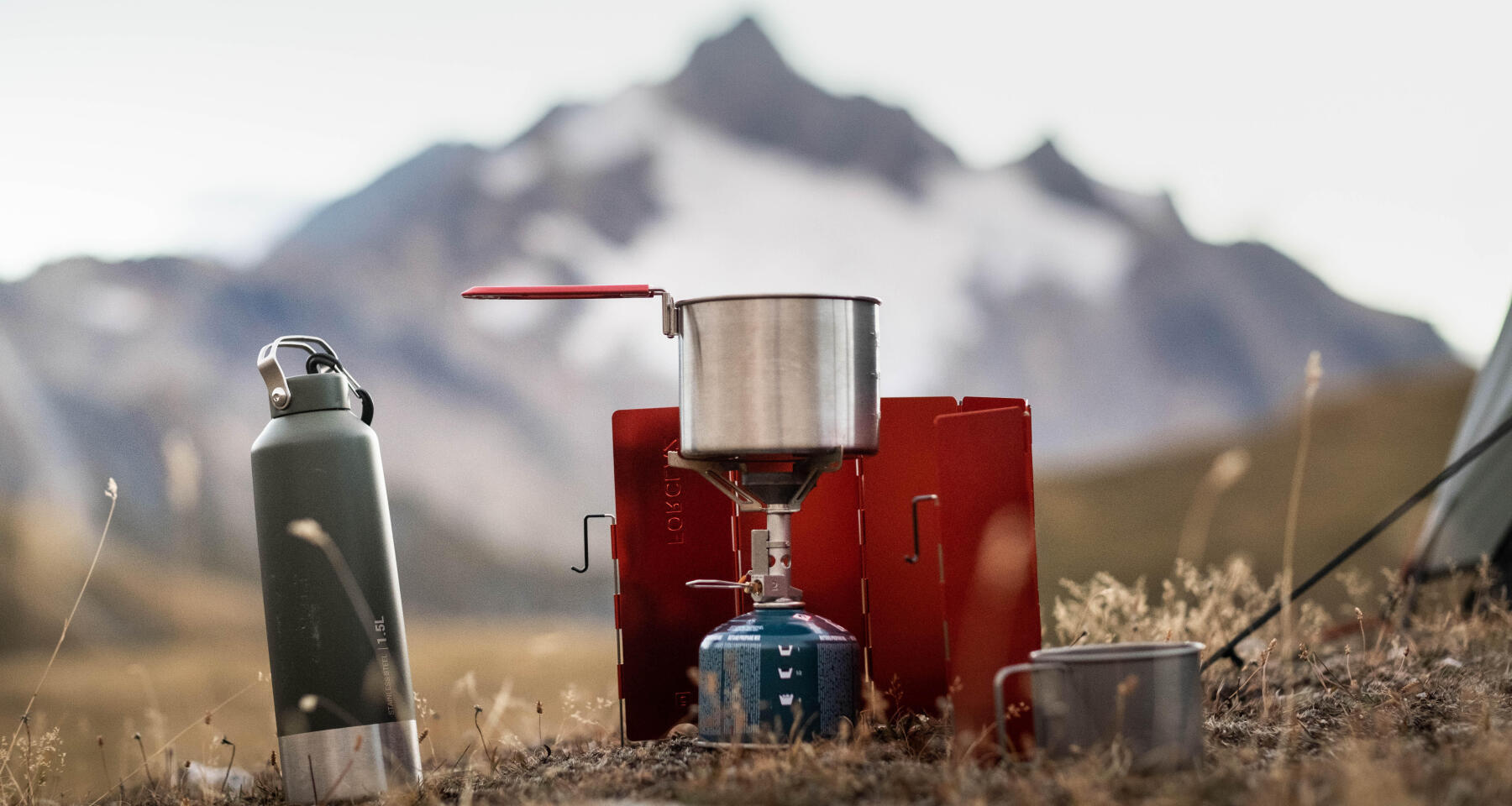
You use up a lot of energy when you go hiking. If you spend several hours hiking each day, you need to eat properly to make sure that your body gets enough calories.
- Hikers need between3000 and 4000 calories per day of hiking. This varies depending on your height and weight. This is a large range and should be adapted according to the weather conditions (if it is cold, you will need more energy). You need to eat enough to recover well at the end of the day and to avoid energy crashes during the walk.
- You will need to have calories from a range of different food groups: 50–60% carbohydrates (e.g. wheat, pasta, pulses, etc.), 30–40% fats (e.g. oil seeds, such as walnuts, almonds, hazelnuts, etc.), 15–30% protein (e.g. eggs, chicken, beef, pulses, cereals, etc.).
Of course, these are estimates and a breakdown that only apply to days of intense activity.
Don’t forget about carbohydrates and fatty acids (a category of fats) to give you energy throughout the day.
- We recommend carrying 3 litres of water with youboth for your own consumption and to rehydrate your food.
The day before you leave for your hike, eat a starchy dish (pasta, rice, etc.) to have a small reserve of energy on the day.
During your hiking trip, stick to a routine of eating three meals per day. Eat relatively light at lunchtime to avoid digestive fatigue. However, the evening at the bivouac is your time to recover, so listen to your body and eat as much as you want.
During the day, you may feel hungry or lack energy. Having snacks with you will be very helpful. Choose something that will make you feel good, like an energy bar or dried fruit. You can get your energy back and it is always comforting after an intense effort.
If you are going hiking alone, you need to make sure you have enough food for the whole day. You might be wondering: why do hikers love freeze-dried food so much and why do you recommend it?
Making freeze-dried food is a complex process, and it has its advantages and disadvantages.
. We recommend it because it is lightweight and compact, it provides a lot of energy, it is easy to use and there is a wide variety of dishes available!
Quick-fire: What is freeze-dried food?
A freeze-dried product is a dish that has undergone a freeze-drying process. This consists of dehydrating the food to extract the water. Its taste is preserved and it keeps its nutritional qualities. It’s light and compact and can be rehydrated easily with hot or cold water depending on the dish.
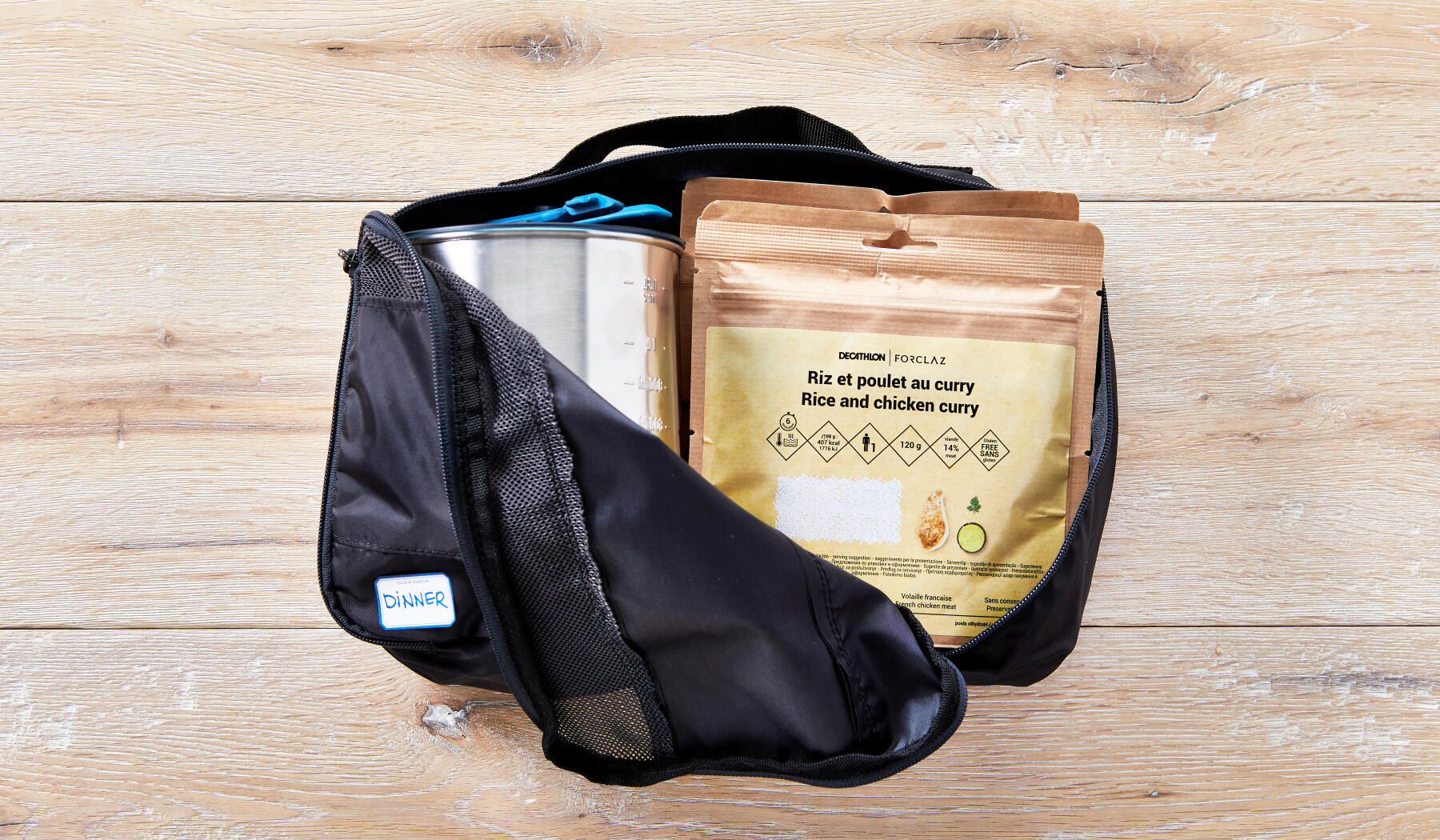
If you’re hiking for several days, you should allow for at least one freeze-dried dish per meal. You can choose to buy sandwiches in shelters for lunch (call them beforehand to reserve), but dinner is really the meal that we advise you to eat hot. You can also eat a freeze-dried meal for lunch and eat in the shelters in the evening.
Freeze-drying makes it possible to prepare meals very quickly by rehydrating them with hot or cold water, depending on the recipe, and so they are ready to enjoy in just a few minutes. All you need is a cooking pot, a stove, cutlery and some water!
With a wide range of options for every meal from breakfast to dessert, freeze-dried products offer you balanced meals throughout your hikes.
If you leave for a night in a bivouac, (2 days of hiking) you’ll have had breakfast before departure, you will need: 1 breakfast, 2 lunches, 1 dinner, 2 desserts + snacks (cereal bars, dried fruit, fruit pastes, etc.)
Suggested shopping list:
Breakfast: muesli with raisins + coffee or tea
Lunch: Vegetable couscous / chicken curry with rice
Dinner: Bolognaise pasta
Dessert: Raspberry crumble / Vanilla rice pudding
Snacks: cereal bars
The number of desserts depends on your appetite and how much you like sweet things. Generally, at least one is recommended for the evening to make sure you get the right amount of calories. Don't hesitate to take more snacks than you need to make sure you have enough to eat throughout the day.
For those on a budget,
there are some lighter alternatives, such as ready-made Chinese noodles or soups that come in sachets. However, these options will not cover your nutritional needs. You can take some dried meat for a good protein supplement.
Breakfast is an important meal when trekking. You need to eat enough to stay fit, without feeling tired until the next meal.
You can take instant coffee or tea bags depending on your preference. Freeze-dried coffee is ultra-light. If you like it with milk, take it in powder form. Choose your favourite drink to keep you well hydrated in the morning.
You can opt for freeze-dried muesli, or take the time to prepare your own breakfast before you leave.
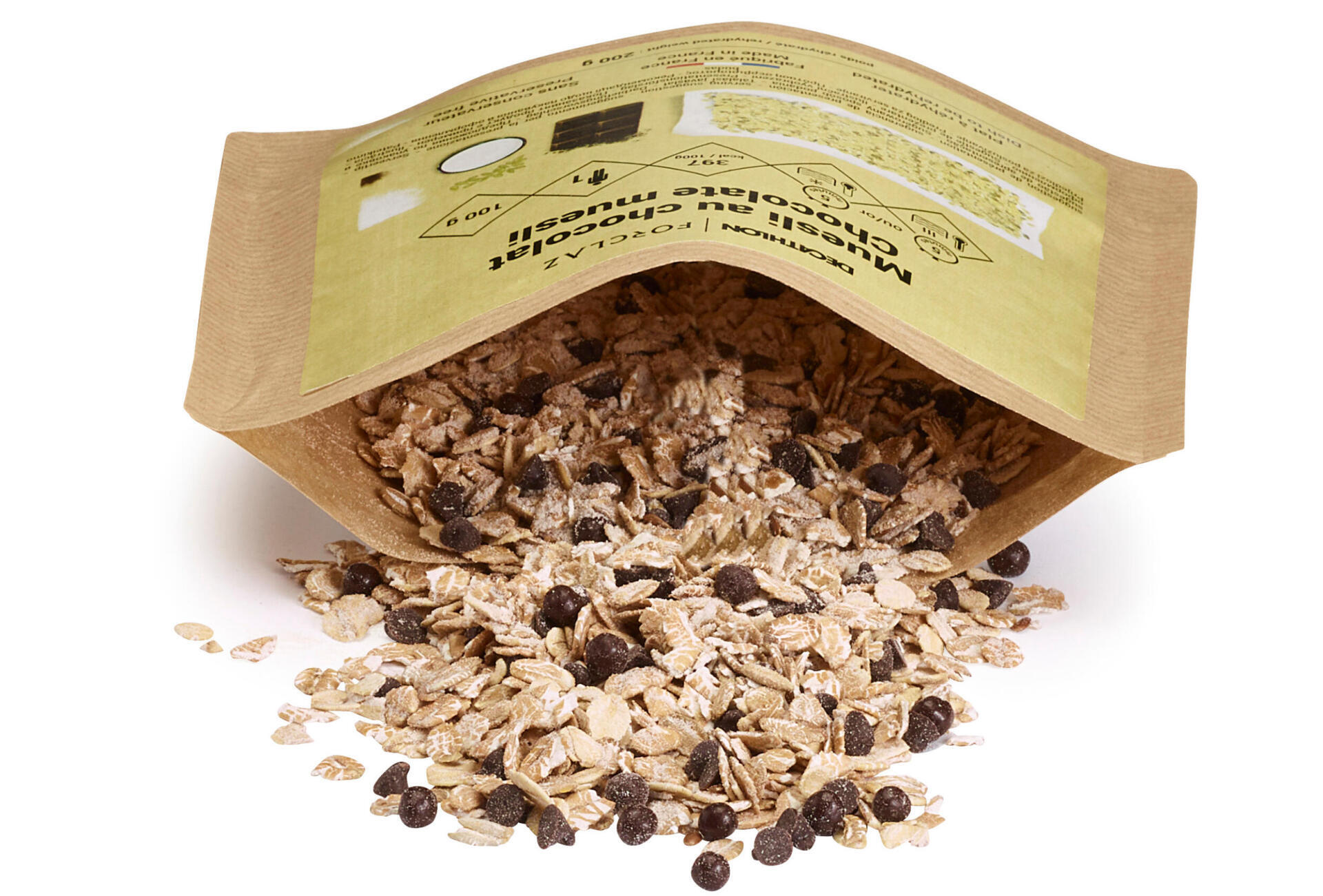
BREAKFAST - CHOCOLATE MUESLI
397 kcal of energy in 100g (dehydrated weight). Final rehydrated weight: 200 g. Can be rehydrated cold
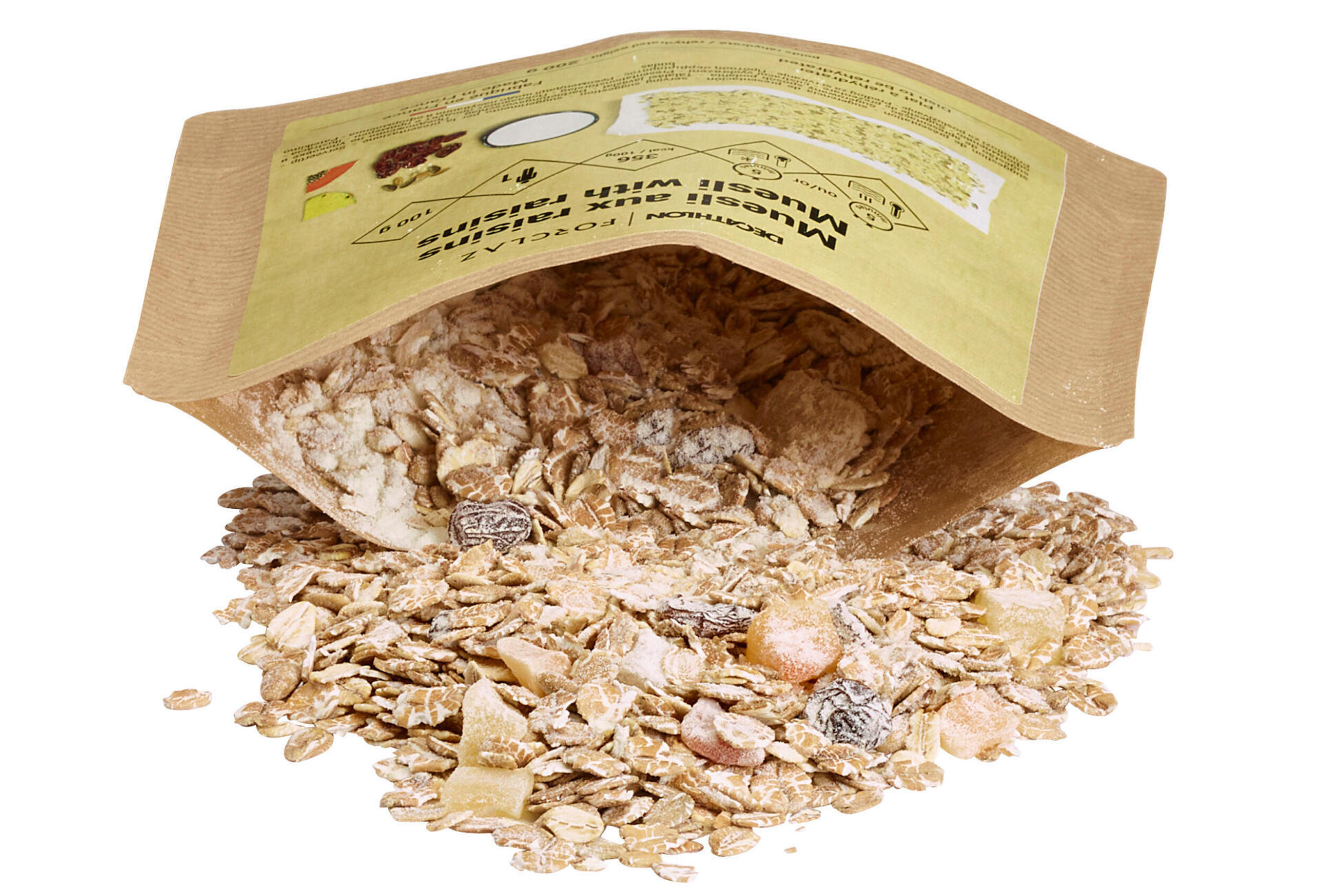
BREAKFAST - MUESLI WITH RAISINS
356 kcal of energy in 100g (dehydrated weight). Final rehydrated weight: 200 g. Can be rehydrated cold.
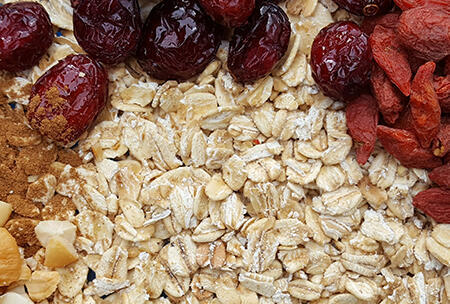
Goji berry and cranberry muesli
Adding quick sugars (raisins or dried berries) will give you energy for the start. Muesli is rich in carbohydrates and fibre and will keep you going until lunch. Nuts or almonds will provide you with valuable fatty acids.
When you are hiking for several days, lunch and dinner are really important.
You will need hearty dishes that will keep you going physically.
If you’re gluten-free or vegetarian, there are freeze-dried products and recipes specially designed for you.
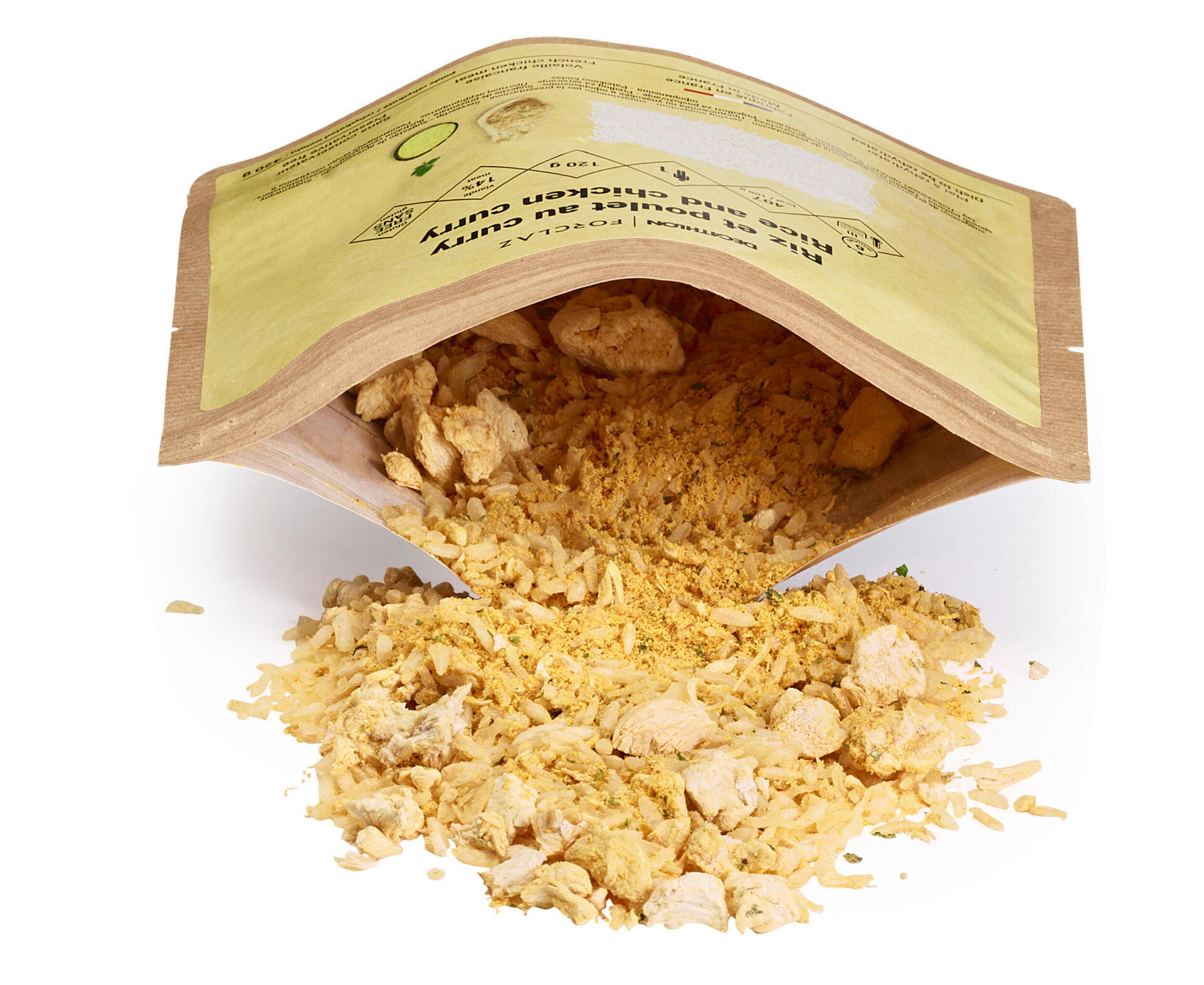
CHICKEN CURRY WITH RICE - GLUTEN FREE
415 kcal of energy in 100 g (dehydrated weight of the 140 g meal). Final rehydrated weight: 420 g. Gluten free.

QUINOA AND LENTIL MIX VEGETARIAN FREEZE-DRIED
460 kcal after 8 minutes rehydrating with hot water.
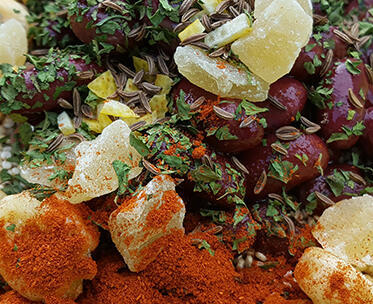
Chilli style Quinoa
Our recipes include carbohydrates (couscous, quinoa), plant-based proteins (quinoa, chickpeas), nuts or dried fruit rich in fat. And of course, spices to make our dishes tasty.
Even if the meal structure (morning, noon and evening) remains the same as at home.
While hiking, you will need some supplies to supplement your meals or to satisfy you when you get a bit peckish. So, plan to have some snacks to help you regain your strength throughout the day (within reason).
Do you like to have a little sweet treat after your meals? Are you looking for snack ideas? You could try our Decathlon cereal bars , take afreeze-dried sweet treat or make your own snacks.

RASPBERRY CRUMBLE - FREEZE-DREID DESSERT
249 kcal of energy per sachet (freeze-dried dessert weight: 50 g.) Final rehydrated weight: 75 g
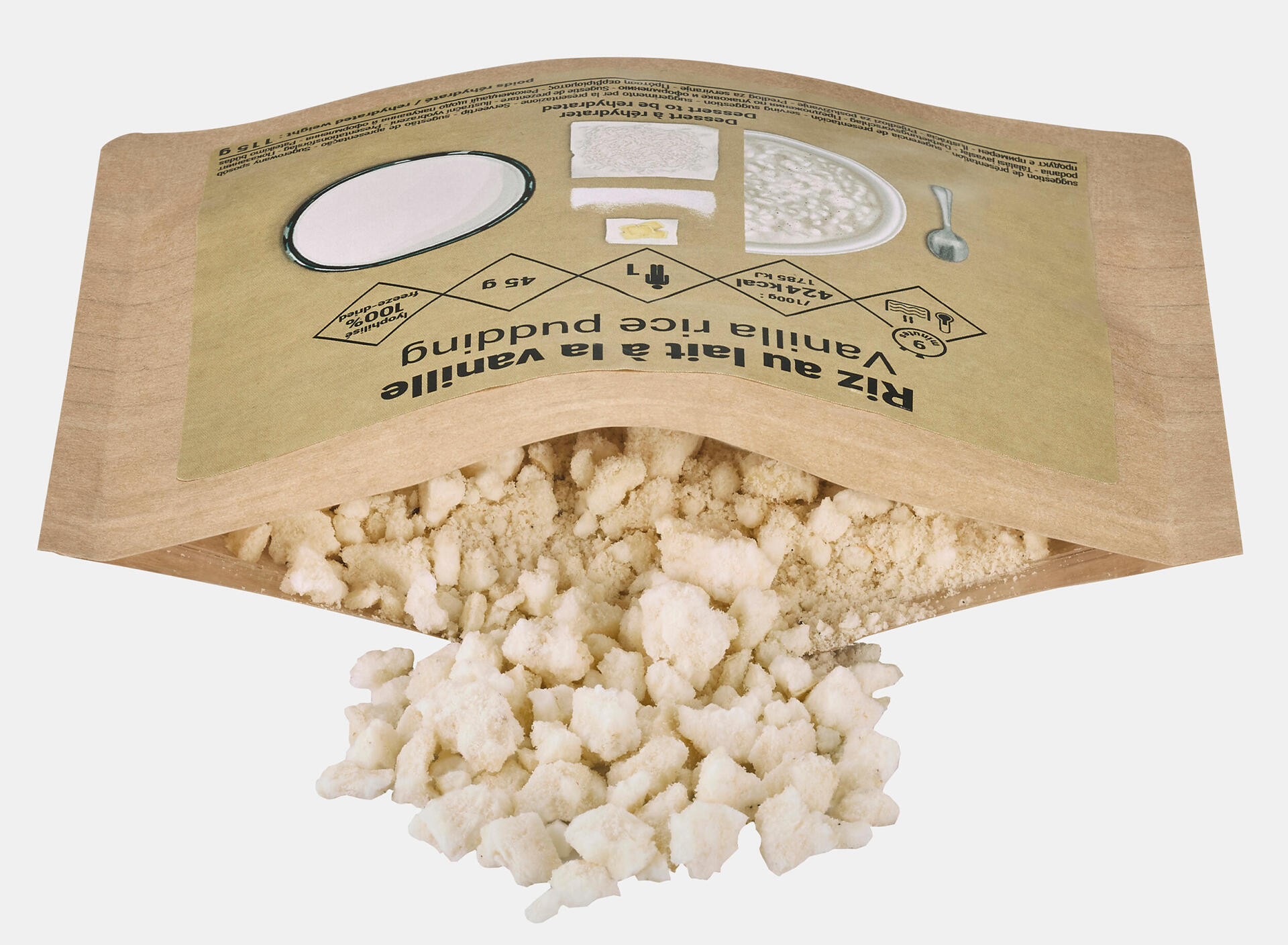
VANILLA RICE PUDDING - FREEZE-DRIED - DESSERT
191 kcal of energy per sachet (freeze-dried dessert weight: 45 g). Final rehydrated weight: 115 g
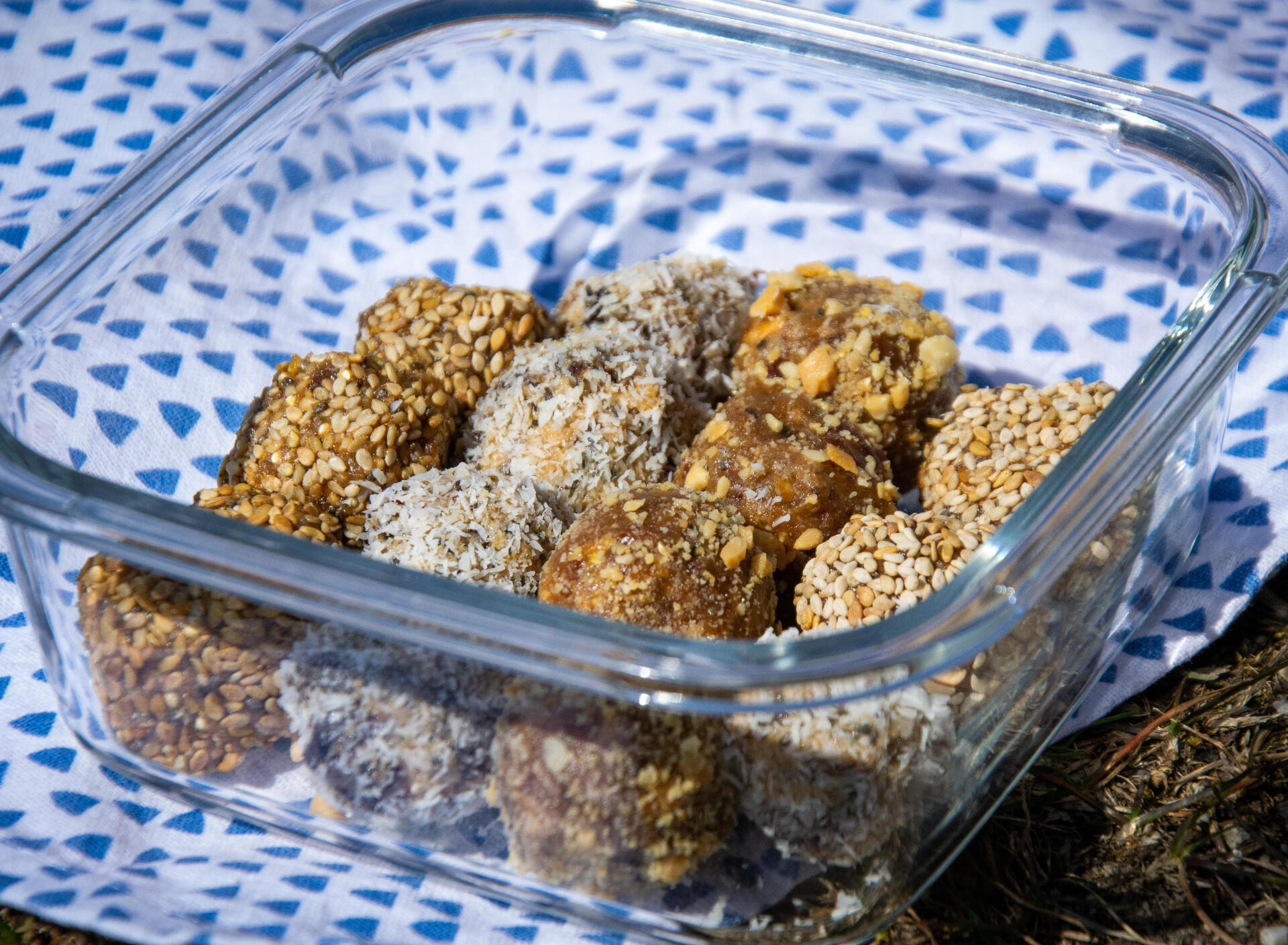
ENERGY BALLS
Dried apricots, dates, figs, we have 3 recipes that you can reproduce endlessly or personalise according to your tastes. They’re perfect for hiking, but also for after your sports sessions.
Now you’re ready to go and enjoy the trails!
A little bonus tip: don't forget to take your stove (with gas or alcohol) and your cooking pot to prepare everything. Eating well on a trek is the best way to enjoy the landscape.
If you’re still hesitating about where to go, we can help you find the ideal destination to combine visual and tasting pleasure!